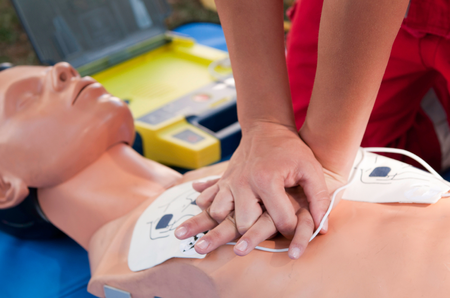Defibrillator Training


Automated External Defibrillator (AED) Training is a specialized training program that educates individuals on how to effectively and safely use an automated external defibrillator. An AED is a portable device that delivers an electric shock to the heart in cases of sudden cardiac arrest (SCA), a condition where the heart suddenly stops beating. The training aims to teach participants how to recognize the signs of SCA, properly operate the AED, and perform cardiopulmonary resuscitation (CPR) in conjunction with the use of the device. It equips individuals with the necessary skills to respond promptly and potentially save lives in emergency situations where immediate defibrillation is required.
The AED Training course imparts vital skills in defibrillator usage, empowering students with the confidence to effectively respond in emergency situations.
What will I be able to do?
The Automated External Defibrillator training course involves 3 hours of learning and is delivered by a trainer over a half classroom-based day.
The Automated External Defibrillator training course can be conducted either at your own site, our training center in Derry, or alternatively, we can arrange a local venue for you anywhere in Northern Ireland.
This nationally recognized and regulated course is designed for individuals seeking to demonstrate safe and appropriate use of an AED, following the latest European and UK Resuscitation Council Protocols. While prior knowledge is not required, we recommend participants to hold a current First Aid at Work or Emergency First Aid Certificate for optimal preparation.
Automated External Defibrillator (AED) training is important for several reasons:
Overall, AED training plays a vital role in empowering individuals to respond effectively during cardiac emergencies, improving the chances of survival and minimizing the potential long-term impact of such events.